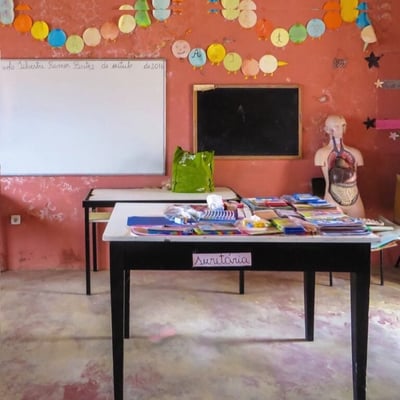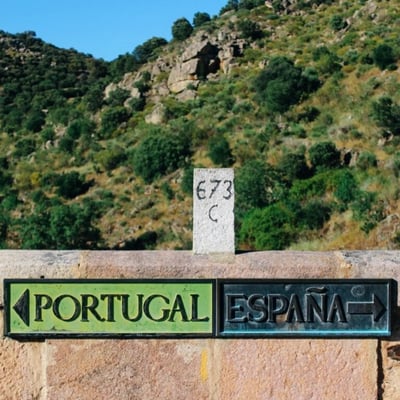1
00:00:02,085 –> 00:00:04,925
Chefe: Parabéns, equipa.
{{Boss: Congratulations, team.}}
2
00:00:04,925 –> 00:00:07,265
E quando eu digo parabéns,
{{And when I say congratulations,}}
3
00:00:07,265 –> 00:00:09,425
é porque vocês merecem.
{{it’s because you deserve it.}}
4
00:00:09,425 –> 00:00:12,225
Todos vocês estão a trabalhar muito,
{{You are all working hard,}}
5
00:00:12,225 –> 00:00:14,125
a cumprir os prazos
{{meeting deadlines,}}
6
00:00:14,125 –> 00:00:16,905
e a ter resultados muito bons.
{{and having very good results.}}
7
00:00:16,905 –> 00:00:19,616
Temos equipas que criam problemas,
{{We have teams that create problems,}}
8
00:00:19,625 –> 00:00:24,445
mas vocês são a equipa que resolve problemas!
{{but you are the team that solves problems!}}
9
00:00:24,445 –> 00:00:27,705
Empregado: Chefe, visto que estamos a ter muito sucesso,
{{Employee: Boss, since we are having a lot of success,}}
10
00:00:27,705 –> 00:00:29,505
acho que todos nós queremos
{{I think we all want}}
11
00:00:29,505 –> 00:00:33,125
saber se também merecemos ganhar um pouco mais.
{{to know if we deserve to earn a little more.}}
12
00:00:33,125 –> 00:00:36,585
Chefe: Ga… Ganhar um pouco mais?
{{Boss: Ea… Earn a little more?}}
13
00:00:36,585 –> 00:00:38,685
Empregado: Sim, mais dinheiro.
{{Employee: Yes, more money.}}
14
00:00:38,685 –> 00:00:41,765
Como a empresa faz muito dinheiro connosco,
{{As the company makes lots of money with us,}}
15
00:00:41,765 –> 00:00:45,045
eu não sei porque nós ganhamos apenas isto.
{{I don’t know why we earn only this.}}
16
00:00:45,045 –> 00:00:51,005
Chefe: Uh… Bem… A empresa quer pagar mais a todos vocês.
{{Boss: Uh… Well… The company wants to pay you all more.}}
17
00:00:51,005 –> 00:00:54,505
Só precisamos de mais tempo,
{{We just need more time}}
18
00:00:54,505 –> 00:00:57,745
a fim de tornar isso possível.
{{in order to make that possible.}}
19
00:00:57,745 –> 00:01:00,205
Empregado: Sempre que nós perguntamos,
{{Employee: Whenever we ask,}}
20
00:01:00,205 –> 00:01:01,905
a resposta é a mesma.
{{the answer is the same.}}
21
00:01:01,905 –> 00:01:03,465
Sabe que mais?
{{You know what?}}
22
00:01:03,465 –> 00:01:06,725
Eu também quero trabalhar mais para todos vocês.
{{I also want to work more for all of you.}}
23
00:01:06,725 –> 00:01:08,565
Só preciso de mais dinheiro,
{{I just need more money}}
24
00:01:08,565 –> 00:01:10,385
para tornar isso possível.
{{to make that possible.}}
25
00:01:10,385 –> 00:01:14,245
E enquanto espero, não trabalho nem mais um minuto.
{{And while I wait, I will not work another minute.}}
26
00:01:14,245 –> 00:01:15,485
Quem está comigo?
{{Who’s with me?}}
27
00:01:15,495 –> 00:01:17,035
Quem está comigo?
{{Who’s with me?}}
28
00:01:17,035 –> 00:01:21,165
Chefe: Calma, calma!
{{Boss: Calm down, calm down!}}
29
00:01:21,165 –> 00:01:23,665
O que é isto, uma revolução?
{{What is this, a revolution?}}
 We respect your privacy and have a ZERO TOLERANCE for spam.
We respect your privacy and have a ZERO TOLERANCE for spam.
















I like these short dialogues. They are a good length. I did try one of the others, but was put off by the length. It would be a good idea to indicate duration as well as difficulty.
Phew! I have just completed the lessons on both the coordinating and the subordinating conjunctions! I am sure I am not alone in finding these hard but I appreciate that they are so very important if I am to master the language and not simply speak in ‘un-conjoined’ sentences! Hopefully, my brain will get to gips with them as future lessons unfold…
Great work Fiona, those are definitely a couple of our heavier Units, for sure 🙂 Thanks for your continued support!
Yes difficult as Fiona says but well explained in this course and any queries are promptly answered.
I see “a ter used muito, how does this work? Thank you. Alan.
Olá, Alan. That is the Present Continuous, which is structured like this: [auxiliary verb estar] + preposition a + [infinitive of main verb]. You can see the full construction, for example, at the start of the sentence “Todos vocês estão a trabalhar…”, and then see it subsequently repeated with different main verbs: “…a cumprir os prazos…”, “…a ter resultados…”. In English, these are all -ing forms (a trabalhar = working | a cumprir = meeting | a ter = having).
More on this here: Present Continuous in Portuguese
Glad that question was asked and answered!
Yeah! Fight the power! Vive a revolução!
There is a missing word in 01:10 “E enquanto espero, não trabalho mais um minuto.” The word is “Nem” and comes before the word “Mais”
Hi Barak, “mais um minuto” is correct, however, it’s true that it is more common to say “nem mais um minuto”. “Nem” here basically means “not even”, so it’s often added for emphasis, but is not a mandatory element in the sentence. Thanks for your comment! It’s helpful to point out the different ways you will hear phrases like this.
Molly, I believe the spoken version includes nem, but the transcript doesn’t. Great audio though, found it quite funny even when I didn’t get all of the words first time round.
Oh you’re right! Sorry, I completely missed that. I’ll make the correction. 🙂
Hello,
In this unit, I saw the above sentence mentioned “Quando eu tenho fome, eu como”.
Why is this sentence not “Quando tiver fome, eu como”? If both options are possible, how does one differ from the other? Do we need to use future conjunctive if the present tense works?
Thank you in advance.
Olá! Good question. “Quando eu tenho fome, eu como” is also grammatically correct, but it’s a more general sentence, suggesting a typical habit or rule. “Quando tiver fome, eu como” feels more specific to this one moment 🙂